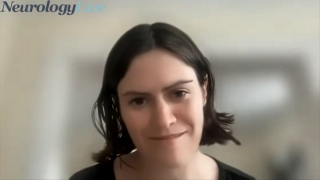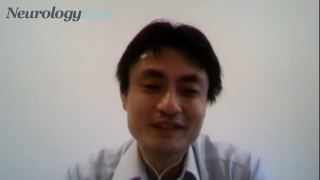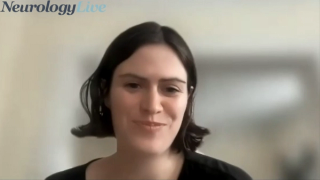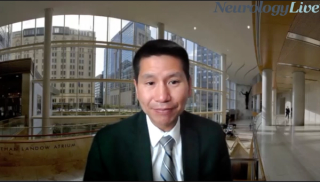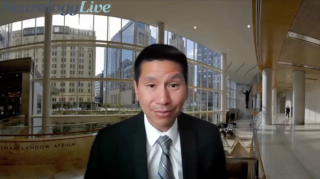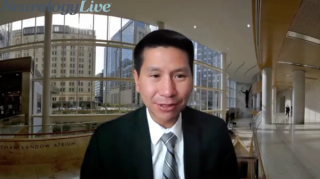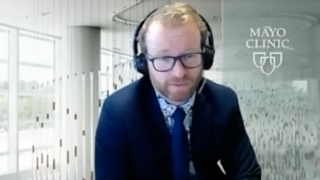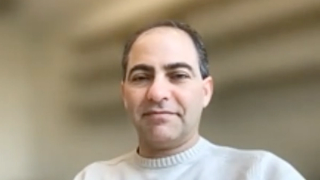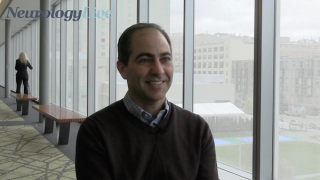
NMOSD
Latest News

Latest Videos

CME Content
More News

Preliminarily data from in vitro experiments demonstrated that cytomegalovirus antigenic peptides can activate peripheral antigen-specific T cells among patients with NMOSD.

Christy Sheehy, PhD, chief executive officer and cofounder of C. Light Technologies, talked about the FDA clearance of Retitrack—retinal eye-movement monitor—and how the device holds promise for facilitating more accurate ocular motor assessments at bedside.

According to a recent study, malnutrition is related closely to quality of life among patients with NMOSD, caused by a variety of physiological and psychological factors.

Among a cohort of more than 70 individuals with MS, only 1 relapse occurred while on eculizumab, with significant reductions in immunosuppressive use observed.

Differential diagnosis consideration for MS requires a circumspect approach dependent on the clinical presentation and accompanied by vigilance for clinical and paraclinical red flags suggesting alternative diagnoses.
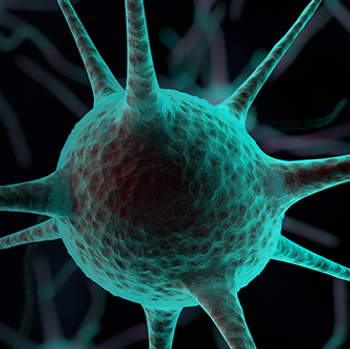
METEOROID is the first study to evaluate the efficacy and safety of satralizumab, an FDA-approved therapy for NMOSD, in patients with MOGAD.

A panel of experts in the treatment of patients with NMOSD discusses and offers insight into the vital aspects of diagnosis, disease management, and therapeutic strategy.

Compared with placebo, inebilizumab-treated participants showed attenuated biomarker elevation during attacks and reduced biomarker levels over time in the absence of adjudicated attacks.
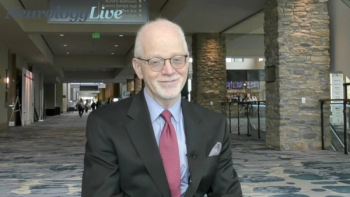
The professor of neurology at the University of Virginia discussed the progress made in recognizing and diagnosing neuromyelitis optica spectrum disorder through the discovery of specific monoclonal antibodies. [WATCH TIME: 5 minutes]

The associate professor at the University of Colorado highlighted the limitations of standard care visits in collecting crucial data from pediatric multiple sclerosis centers. [WATCH TIME: 3 minutes]
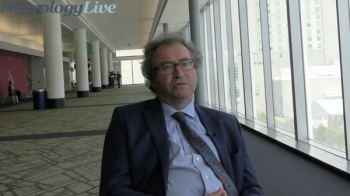
The director of the Mayo Clinic Center for Multiple Sclerosis and Autoimmune Neurology provided commentary on the possibility of preventing NMOSD, and the need to improve access to approved therapies and AQP4 testing. [WATCH TIME: 3 minutes]

The associate professor at the University of Colorado talked about a study involving pediatric patients with multiple sclerosis and related disorders, and the risk of COVID-19 infection among those on B-cell-depleting therapy. [WATCH TIME: 5 minutes]
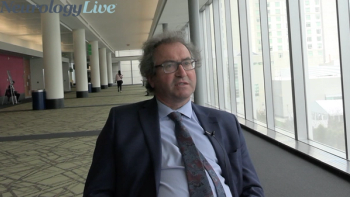
The director of the Mayo Clinic Center for Multiple Sclerosis and Autoimmune Neurology discussed findings from the phase 3 CHAMPION-NMOSD trial of ravulizumab in patients with neuromyelitis optica spectrum disorder. [WATCH TIME: 5 minutes]

Teri Schreiner, MD, associate professor at the University of Colorado, talked about the impact of B-cell-depleting therapy in pediatric patients with MS infected with COVID-19.

Jeffrey Bennett, MD, PhD, professor of neurology and ophthalmology at the University of Colorado Denver talked about inebilizumab for patients with NMOSD from the N-MOmentum trial.

The director of the Mayo Clinic Center for Multiple Sclerosis and Autoimmune Neurology provided perspective on a phase 3 study of patients with NMOSD in which no relapses were recorded while on ravulizumab.

Inhibition of serum free complement 5 with ravulizumab was sustained throughout the treatment period according to a pharmacokinetics and pharmacodynamics analysis.

The treatment was superior in preventing on-trial relapse in both the monotherapy and immunosuppressive therapy groups compared with placebo in the CHAMPION-NMOSD trial.

Updated results to the phase 3 CHAMPION-NMOSD trial of ravulizumab showed significantly lower HAI score worsening following treatment.

NMOSD-related optic neuritis represented the strongest predictive risk factor of failure to attain visual recovery of at least 0.3 logMAR, with an odds ratio of 10.47.

Sheryl Lapidus, MA, senior director of patient advocacy at Horizon Therapeutics, talked about the findings from a recently conducted patient survey on NMOSD and the importance of advocacy in the field.

Michael Levy, MD, PhD, associate professor at Harvard Medical School, spoke about the breakthrough of drugs for NMOSD and the challenges patients face to receive treatment.

More than 95% of the cohort of elderly patients showed functional improvement at 6 months after plasma exchange, including 60% who experienced moderate-to-marked improvement.

Michael Levy, MD, PhD, associate professor at Harvard Medical School, talked about the differences between multiple sclerosis and neuromyelitis optica spectrum disorder, the currently available treatments, and next steps in research.

Disease activity, severity, or effect of treatment in patients with NMOSD may be predicted by aminoacyl-tRNA synthetase-interacting multifunctional protein-1.





